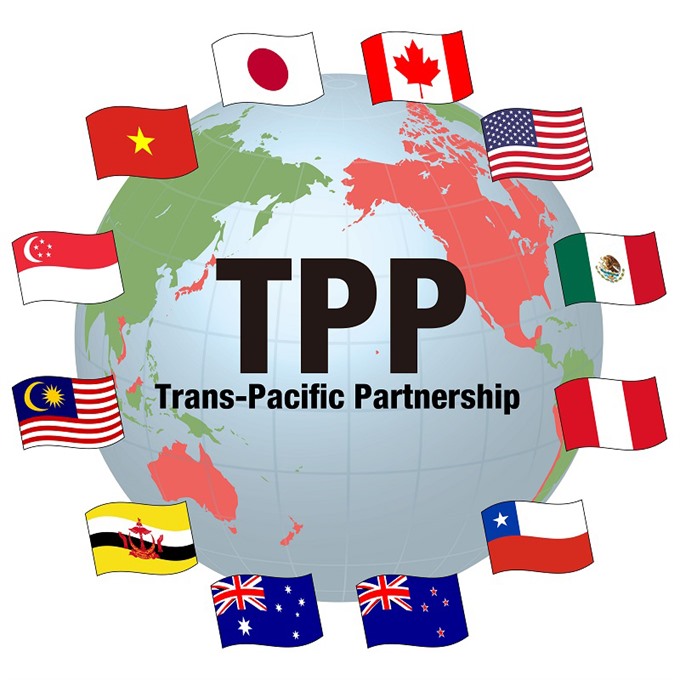 Society
Society

Việt Nam’s legal framework is compatible with most of the commitments on investment it has undertaken under the Trans-Pacific Partnership agreement (TPP) but not compatible with commitments on transfer and investor-State dispute resettlement, Việt Nam Chamber of Commerce and Industry (VCCI) announced yesterday.
 |
| Among the new-generation free trade agreements of Việt Nam, the TPP and the Việt Nam-EU FTA (EVFTA) are considered the two with the most significant impact for trade and investment policies. VNS File Photo |
HÀ NỘI — Việt Nam’s legal framework is compatible with most of the commitments on investment it has undertaken under the Trans-Pacific Partnership agreement (TPP) but not compatible with commitments on transfer and investor-State dispute resettlement, Việt Nam Chamber of Commerce and Industry (VCCI) announced yesterday.
Among the new-generation free trade agreements (FTA) of Việt Nam, the TPP and the Việt Nam-EU FTA (EVFTA) are considered the two with the most significant impact for trade and investment policies.
The VCCI, with support from the British Embassy in Việt Nam, completed a draft review of the EVFTA and TPP commitments on investment.
When the pacts take effect, investment commitments are expected to change Việt Nam’s investment environment given that investors from 38 partner states account for a huge proportion of Việt Nam’s Foreign Development Investment (FDI).
Nguyễn Thị Thu Trang, Director of VCCI’s World Trade Organisation Centre and a member of the review group, said the team reviewed TPP’s Investment Chapter and Việt Nam’s Investment Law, its guiding documents, relevant laws such as the Civil Law, laws on enterprise, State compensation liability and specialised laws related to market access of foreign investment.
They found that Việt Nam legal framework is compatible with most of TPP commitments on investment, especially basic principles on market access and removing investment barriers.
For example, Việt Nam’s laws on investment and enterprises make no distinction between domestic and foreign investors, a fact compatible with the Nation Treatment principle.
Việt Nam’s legal provisions also do not distinguish among investors from different countries, which is compatible with Most-favoured Nation Treatment principle.
However, she said, Việt Nam’s legal framework does not address the overseas transfer of goods and money. Việt Nam regulates cases allowed for transfer while TPP regulates cases which could be limited for transfer.
When it comes to foreign investor-State dispute settlement, Việt Nam’s legal framework does not provide for consultation and mediation, unlike the TPP. Moreover, its legal framework is completely different than the TPP with regard to arbitration procedures, Trang said.
The incompatibility could result in situations in which some actions following domestic laws but violating TPP commitments, she said, noting that foreign investors could sue Việt Nam’s Government.
“Việt Nam has made efforts to fine-tune its legal framework since joining ... in the global integration ... but it should pay more attention to law enforcement to ensure the benefits for the parties involved,” she said.
Trang also suggested that local businesses learn about Việt Nam’s commitments to foreign investors.
Learning the TPP commitments would also be useful to Vietnamese businesses that want to invest in TPP member countries, she said.
Phạm Mạnh Dũng of the LCT Lawyer Company and former director of the Legal Department under the Ministry of Planning and Investment, said that commitments on investment are not only included in TPP’s Investment Chapter but also other chapters on finance, logistic or communication services, chapter on State-owned enterprises, small and medium enterprises, labour and labour dispute settlement.
“The VCCI’s review could have been comprehensive if its scale was larger and if it could review legal documents issued by local governments and provincial/municipal People’s Committees,” he said.
He added that a similar review of Việt Nam’s TPP commitments on intellectual property was needed because investors from developed countries care much about intellectual property protection.
Twelve Pacific Rim countries, including Việt Nam and the US, signed the TPP in New Zealand in February, 2016. The TPP is now undergoing a two-year ratification period in which at least six countries – which account for 85 percent of the 12 nations’ combined gross domestic production - must approve the final text for the deal to be implemented. — VNS